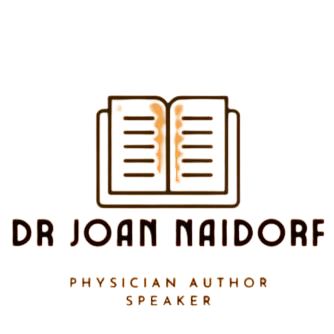#24 To That Girl Sobbing in the Shower
Going Unmatched (A message to 26-year-old me)
That really hurt when you had to look at the morning USA Today newspaper to see if you matched for an emergency medicine training program. The public match announcement came after a rough night of call and you were exhausted. First came the excited scan of the box of numbers. Then came the crushing feeling of rejection and the punch to the gut of being “unmatched.” Then a quick call to your husband who somehow, was already helping to formulate plan B. Then, what you remember most about that awful day, sobbing in the shower before starting another day as chief intern.
Here’s how it happened. You moved through clinical rotations during third year at the Philadelphia College of Osteopathic Medicine and arranged a family medicine block with Gerry Baird, a well-loved practitioner in Northeast Philadelphia. To keep you from getting bored, she arranged with her friend, Mark Rosenberg (recent president of the American College of Emergency Physicians), to have you spend part of your days at the emergency department at a hospital in Northeast Philadelphia called Metropolitan Hospital Parkview Division.
You had no knowledge or previous experience with emergency medicine or what happened in the ER. People who thought they were having an emergency were brought there by ambulance. Other people who were injured or sick, came in by private vehicle and registered to be seen. Anything and everything presented in those patients. There were sick children, men with chest pain, people immobilized on backboards after car accidents, and elderly people who had fevers from the nursing homes.
Every case was like a mystery that you, as the medical student, got to investigate and solve. You could order labs, get X-rays, and interpret electrocardiograms. You could give someone the fluids they needed for dehydration or the medicine they needed to relieve their pain. You could do fun procedures like repairing a laceration or incising and draining an abscess. At the end of your fleeting relationship with the patient, you got to say goodbye. Either you called an intern to admit the person or you came up with a treatment and follow-up plan to send them home. They even had a catchy little name for it: treat ‘em and street ‘em.
Well, you knew a good thing when you found it. Much to your delight, there were a few programs in Philadelphia that were providing residency training for the brand-new specialty. One of the best was the program based at the teaching hospital associated with your school, the Osteopathic Medical Center of Philadelphia (OMCP). There were very few emergency medicine residency programs in the country. At that time in 1986, there were about 300 spots available across the nation with less than twenty spots located in Philly.
You wanted to stay in Philadelphia because you had just gotten married and your husband was entering the second year of his internal medicine residency at the Albert Einstein Medical Center in North Philadelphia. You used an elective month at the Medical College of Pennsylvania where David Wagner ran a wonderful EM program. It was there that you were able to insert your first chest tube. A girl never forgets her first. And it was also there, that you met Kathy Kelly, who despite the odds, is still one of your best friends. You applied to that program.
It was a very long shot for a DO to match at an MD program in those days. You were finishing a post graduate year 1 (PGY1) doing a rotating internship at Metropolitan Hospital Parkview Division. You were not selected at your first-choice program at OMCP or your second choice. You went unmatched on match day. You spent part of match day morning crying in the shower, quite certain that was the worst day of your life.
With your husband’s help, you set up an interview for some unmatched spots in the combined medicine-pediatric program at his hospital. The first year was to be another PGY 1 year as an internal medicine resident. You were offered that position and agreed to a second year of being an intern. Like your first internship, the call schedule was every fourth night with no work restrictions post call. There were some very fine teaching attendings at Einstein and a vibrant group of fellow interns and residents. You got to spend a little more time with your husband in the hospital cafeteria.
You learned a ton about admitting and managing internal medicine patients. You made yourself a better doctor and a better candidate for the residency program for which you were determined to reapply. The EM program at the OMCP accepted you on your second try! (That program later moved to Einstein.) The residents were lovely, and the attending physicians were talented and generous people. You rotated through specialty hospital rotations including the Children’s Hospital of Philadelphia (CHOP) and the regional burn center. You were well-trained and after two years (my PGY 3 & 4 years), you took a job at a community hospital in Alexandria, Virginia. This was where your husband was from and was going to start a solo gastroenterology practice.
You became the first residency trained emergency physician at the hospital where the specialty of emergency medicine was born. You weathered through various contract changes and worked part-time during the years raising three energetic children. Your long career had many ups and downs and along the way, you met the most amazing nurses, physicians and PA’s.
When you tired of all the nights and weekends that came with part-time work, you started to write and teach. Your book was published in January 2022. To my younger self, that girl who was sobbing in the shower on match day, may I say, “That may have been one of the best days of your life.”
Sincerely,
Joan of 2022





